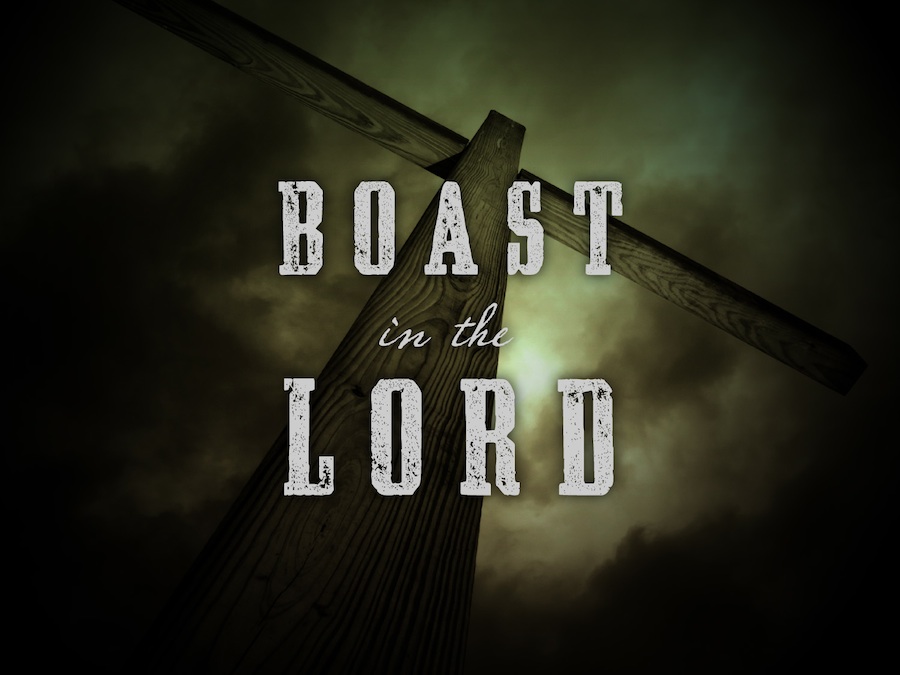Subtitle: A Humble Life, Lesson 4
This week, I wanted to share some “quotable quotes” on humility…
“But God chose what is foolish in the world to shame the wise; God chose what is weak in the world to shame the strong; God chose what is low and despised in the world, even things that are not, to bring to nothing things that are, so that no human being might boast in the presence of God… as it is written, “Let the one who boasts, boast in the Lord.” (1 Corinthians 1:27-29, 31)
“Since God opposes the proud and gives grace to the humble, what could be more important than understanding and developing true humility as a lightning rod for grace?… We need less egomania and more humility and servanthood in our churches today.” (Randy Alcorn)
“A proud Christian is an oxymoron.” (J. Ligon Duncan III)
“No matter our age or vocation, humility is our greatest friend and pride our greatest enemy.” (C. J. Mahaney)
“Jim Collins, in his well known book Good to Great, identifies two specific character qualities shared by the CEOs of these good-to-great companies. The first quality was no surprise: These men and women possessed incredible professional will – they were driven, willing to endure anything to make their company a success.
“But the second trait that these leaders had in common wasn’t something the researchers expected to find: These driven leaders were self-effacing and modest. They consistently pointed to the contribution of others and didn’t like drawing attention to themselves. ‘The good-to-great leaders never wanted to become larger-than-life heroes,’ Collins writes. “They never aspired to be put on a pedestal or become unreachable icons. They were seemingly ordinary people quietly producing extraordinary results.’ When Collins interviewed people who worked for these leaders, he says they ‘continually used words like quiet, humble, modest, reserved, shy, gracious, mild-mannered, self-effacing, understated, did not believe his own clippings, and so forth’ to describe them.” (C. J. Mahaney)
“Yes, amazingly, humility sometimes attracts the world’s notice. But here’s something even more astonishing: Humility gets God’s attention. In Isaiah 66:2 we read these words from the Lord:
‘This is the one to whom I will look:
He who is humble and contrite in spirit
And trembles at my word.’
“This profound passage points us to an altogether different motivation and purpose for humility than we will ever find in the pages of a secular business manual. Here we find motivation and purpose rooted in this amazing fact: Humility draws the gaze of our Sovereign God.” (C. J. Mahaney)
“The person who is humble is the one who draws God’s attention, and in this sense, drawing His attention means also attracting His grace – His unmerited kindness.
Think about that: There’s something you can do to attract more of God’s gracious, undeserved supernatural strength and assistance! … Contrary to popular and false belief, it’s not ‘those who help themselves’ whom God helps; it’s those who humble themselves.” (C. J. Mahaney)
So what is “humility” according to Scripture?
“Humility is honestly assessing ourselves in light of God’s holiness and our sinfulness.
That’s the twin reality that all genuine humility is rooted in: God’s holiness and our sinfulness. Without an honest awareness of both these realities, all self-evaluation will be skewed and we’ll fail to either understand or practice true humility. We’ll miss out on experiencing the promise and the pleasures that humility offers.” (C. J. Mahaney)
“There is only one thing I know of that crushes me to the ground and humiliates me to the dust, and that is to look at the Son of God, and especially contemplate the cross.
When I survey the wondrous cross
On which the Prince of Glory died,
My richest gain I count but loss
And pour contempt on all my pride.
Nothing else can do it. When I see that I am a sinner… that nothing but the Son of God on the cross can save me, I’m humbled to the dust… Nothing but the cross can give us this spirit of humility.”
(D. Martyn Lloyd-Jones)
“Fill your affections with the cross of Christ that there may be no room for sin [which includes pride].” (John Owen)
“Every time we look at the cross, Christ seems to be saying to us, ‘I am here because of you. It is your sin I am bearing, your curse I am suffering, your debt I am paying, your death I am dying.’ Nothing in history or in the universe cuts us down to size like the cross. All of us have inflated views of ourselves, especially in self-righteousness, until we have visited a place called Calvary. It is there, at the foot of the cross, that we shrink to our true size.” (John Stott)
“How can anyone be arrogant when he stands beside the cross?” (Carl F. H. Henry)
“Far from offering us flattery, the cross undermines our self-righteousness, and we can stand before it only with a bowed head and a broken spirit.” (John Stott)
“Pride is more than the first of the seven deadly sins; it is itself the essence of all sin.” (John Stott)
In Proverbs 6:16-17, God lists those things “that the Lord hates” and “that are an abomination to him.” What’s at the top of that list? “Haughty eyes (i.e. pride).”
“I hate pride and arrogance.” (Proverbs 8:13 NIV)
“Everyone who is arrogant in heart is an abomination to the Lord; be assured, he will not go unpunished.” (Proverbs 16:5) Think about the above verse: Stronger language for sin simply cannot be found in Scripture.
“The grand difference between a human being and a supreme being is precisely this: Apart from God, I cannot exist. Apart from me, God does exist. God does not need me in order for Him to be; I do need God in order for me to be. This is the difference between what we call self-existent being and dependent being. We are dependent. We are fragile. We cannot live without air, without water, without food. No human being has the power of being within himself. Life is lived between two hospitals. We need a support system from birth to death to sustain life. We are like flowers that bloom and then wither and then fade. This is how we differ from God. God does not wither, God does not fade, God is not fragile.” (R. C. Sproul)
“Charles Bridges once noted how pride lifts up one’s heart against God and ‘contends for supremacy’ with Him. That’s a keenly insightful and biblical definition of pride’s essence: contending for supremacy with God, and lifting up our hearts against Him.” (C.J. Mahaney)
“Jonathan Edwards called pride ‘the worst viper that is in the heart’ and ‘the greatest disturber of the soul’s peace and sweet communion with Christ’; he ranked pride as the most difficult sin to root out, and ‘the most hidden, secret and deceitful of all lusts.’
“God intentionally designed salvation so that no man can boast of it. He didn’t merely arrange it so that boasting would be discouraged, or kept to a minimum – He planned it so that boasting would be absolutely excluded!” As it says in Jonah 2:9, “Salvation is of the Lord.” (Mark Webb)
“The greatest and best man in the world must say, By the grace of God I am what I am, but God says absolutely … I am that I am.” (Matthew Henry)
“…God cannot bear with arrogance. He reveals Himself in Scripture as actively opposed to pride. Actively. ‘God opposes the proud (James 4:6; 1 Peter 5:5). ‘Opposes’ in this statement is an active, present-tense verb, showing us that God’s opposition to pride is an immediate and constant activity. The proud will not indefinitely escape discipline.” (C.J. Mahaney)
“God cannot bear with seeing his glory appropriated by the creature in even the smallest degree, so intolerable to him is the sacrilegious arrogance of those who, by praising themselves, obscure his glory as far as they can.” (John Calvin)
(You will probably notice that there were several quotes from C.J. Mahaney. All of these have been taken from his book, Humility: True Greatness. This book was published in 2005 (Multnomah Publishers) and I read it soon after. It would certainly be at the top of my list of books on this grand, but very slippery and hard to apply subject. I would encourage you to pick up a copy and read it if you want to grow more in this area of your life (it’s a small book and a fairly quick read – only 170 [small] pages).




Leave a Reply